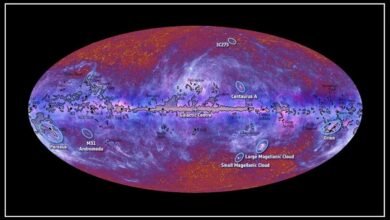Ask Ethan: Does cosmic inflation violate energy conservation? | by Ethan Siegel | Starts With A Bang! | Jun, 2025

A few physical quantities, in all laboratory experiments, are always conserved: including energy. But for the entire Universe? Not so much.
Here in our ever-changing Universe, there are a few things we can rely on remaining constant and unchanged. From place-to-place and moment-to-moment, the laws of physics don’t change; they remain constant, and apply equally across the entire span of the Universe. The values of the fundamental constants — the parameters that determine the masses of particles and the strength of forces — don’t change with time or across space. And in every experiment we’ve ever performed, we’ve seen that certain quantities are always conserved: the total amount that you start with always equals the total amount that you end with.
Many conserved quantities abound: electric charge, linear momentum, angular momentum, and, of course, energy. The conservation of energy is maybe the best known of the conservation laws, and applies to objects on Earth just as well as it applies to the Solar System, the stars, and the entire Milky Way. But if you go way, way back in cosmic history, would you find that, just possibly, energy isn’t conserved after all? That’s what Michael Genovese wants to know, asking:




